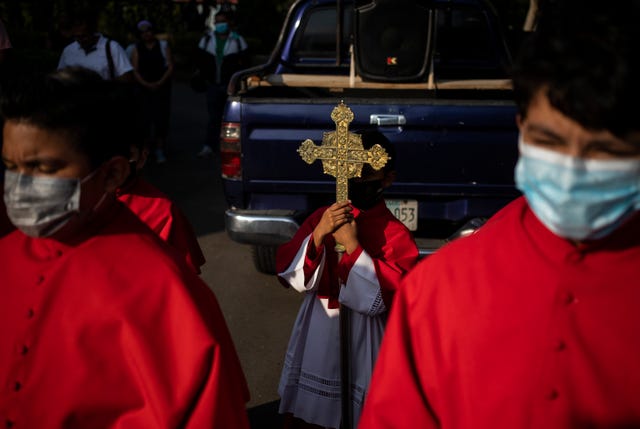Nicaragua crackdown ‘tantamount to crimes against humanity’ – UN
The United Nations has accused Nicaragua’s government of committing ‘serious systematic human rights violations’.

UN-backed human rights experts have accused Nicaragua’s government of systematic human rights abuses “tantamount to crimes against humanity”, implicating a range of high-ranking officials in the government of President Daniel Ortega.
The allegations follow an investigation into the country’s expanding crackdown on political dissent. The Ortega government has gone after opponents for years, but it hit a turning point with mass protests against the government in 2018 that resulted in violent repression by authorities.
In the past year, repression has expanded to large sections of society with a focus on “incapacitating any kind of opposition in the long term”, according to the independent group of UN experts who have been investigating the issue since March 2022.
The experts do not speak for the world body, but work under a mandate from the Human Rights Council.
Jan Simon, an expert who headed the investigation, said at a news conference on Thursday in Geneva that the Nicaraguan government’s persecution targets “all forms of opposition, whether real or perceived, both domestically and abroad”.
The state has targeted civilians, including university students, indigenous and black Nicaraguans, and members of the Catholic Church. Children and family members are now targeted simply for being related to people who raise their voices against the government.
Mr Ortega’s government has repeatedly said that the mass demonstrations in 2018 constituted a failed coup attempt orchestrated by the US, and typically defends any repression as a crackdown on anti-government plots.
The human rights report, which came after hundreds of interviews, implicated a number of high ranking officials in crackdowns that have firmly consolidated power in the hands of Mr Ortega and his vice president Rosario Murillo.

Meanwhile, chief prosecutor Ana Julia Guido Ochoa’s office fabricates evidence against real or perceived opponents, the report says.
The experts also cite high-ranking officials in the country’s interior ministry, the governmental body regulating migration and the body regulating non-governmental organisations.
Mr Simon said the government’s “centralisation of power not only ensures impunity for perpetrators, but also undermines efforts towards accountability”.
“The government has ensured that it remains in an increasingly solid bubble to perpetuate itself in power and annihilate anyone attempting to break that bubble,” he added.
In December, police charged the director of the Miss Nicaragua pageant of a “beauty queen coup” plot, saying she rigged the competition against pro-government beauty queens. In February, the government shut down another round of social groups, including the country’s scouting organisation and a rotary club.
The report says the crackdown has expanded past Nicaragua’s borders to the hundreds of thousands of people who have fled government repression, largely landing in the US and Costa Rica. Hundreds of Nicaraguans have been stripped of their citizenship and left stateless, unable to access fundamental rights.
The UN report urges the Ortega government to release “arbitrarily” detained Nicaraguans and calls on global leaders to expand sanctions on “individuals and institutions involved in human rights violations”.





